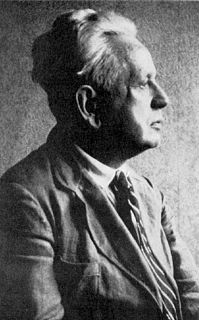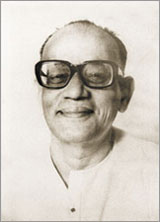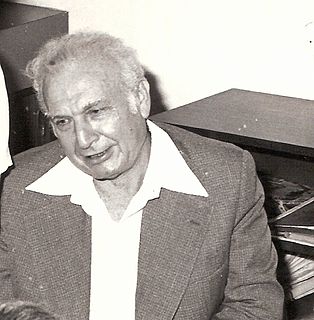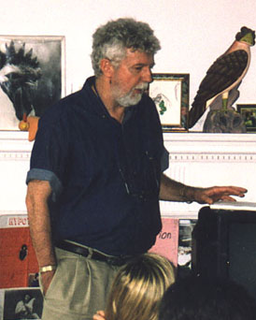A Quote by Pope John Paul II
We emphasize the transcendent worth of the human person. We insist that the human person must never be treated as an object; he must always be considered the subject. That is the basis for our teaching, the absolute standard.
Related Quotes
Any honest examination of the national life proves how far we are from the standard of human freedom with which we began. The recovery of this standard demands of everyone who loves this country a hard look at himself, for the greatest achievements must begin somewhere, and they always begin with the person.
The application of psychoanalysis to sociology must definitely guard against the mistake of wanting to give psychoanalytic answers where economic, technical, or political facts provide the real and sufficient explanation of sociological questions. On the other hand, the psychoanalyst must emphasize that the subject of sociology, society, in reality consists of individuals, and that it is these human beings, rather than abstract society as such, whose actions, thoughts, and feelings are the object of sociological research.
If there is no absolute moral standard, then one cannot say in a final sense that anything is right or wrong. By absolute we mean that which always applies, that which provides a final or ultimate standard. There must be an absolute if there are to be morals, and there must be an absolute if there are to be real values. If there is no absolute beyond man's ideas, then there is no final appeal to judge between individuals and groups whose moral judgments conflict. We are merely left with conflicting opinions.
In knowledge of human affairs, we should never allow our minds to be enslaved by others by subjecting ourselves to their whims. We must maintain freedom of thought, and never accept anything of purely human authority into our heads. When we are presented with a diversity of opinions, we must choose, if we can; if we cannot, we must remain in doubt.
God is not a person; God is manifestation itself. We think that God is a superhuman person, but God is not a person. He is not a subject. We can never experience God in a subject/object experience. God is what makes a subject/object experience possible. We can never see God or experience God as separate from ourselves. God is a being but there is no division.
What are you to do? You are always to remember that you are the child of a Great Father. You must not think that you are a sinner, that you are a degraded person. If you think that you are a sinner, it means you are meditating on sin! When sin has become the object of your meditation, you will become a sinner, because a person becomes just like the object of his or her ideation. We become the object of our meditation.
To see and feel one's beloved naked for the first time is one of life's pure, irreducible epiphanies. If there is a true religion in the universe, it must include that truth of contact or be forever hollow. To make love to the one true person who deserves that love is one of the few absolute rewards of being a human being, balancing all of the pain, loss, awkwardness, loneliness, idiocy, compromise, and clumsiness that go with the human condition. To make love to the right person makes up for a lot of mistakes.
The Church is likewise conscious of the responsibility which all of us have for our world, for the whole of creation, which we must love and protect. There is much that we can do to benefit the poor, the needy and those who suffer, and to favour justice, promote reconciliation and build peace. But before all else we need to keep alive in our world the thirst for the absolute, and to counter the dominance of a one-dimensional vision of the human person, a vision which reduces human beings to what they produce and to what they consume: this is one of the most insidious temptations of our time.
I have come to understand that if we hope to build a better world, we must be guided by the universal human values that emphasize the kinship of the human race - the sanctity of human life and freedom, peace between nations, honesty and truthfulness, regard for the rights of others, and love of one's fellows.
The portrait of a person is one of the most difficult things to do. It means you must almost bring the presence of that person photographed to other people in such a way that they don't have to know that person personally, but that they are still confronted with a human being that they won't forget. That's a portrait.
Everything in the world we want to do or get done, we must do with and through people. Every dollar we will ever earn must come from people. The person we love, and with whom we want to spend the rest of our life, is a human being with whom we must interact. Our children are individuals, each different from any other person who ever lived. And what affects them most is our attitude-the loving kindness they see and feel whenever we are around them. If you'll begin to develop and maintain an attitude that says yes to life and the world, you'll be astonished at the changes you'll see.










































